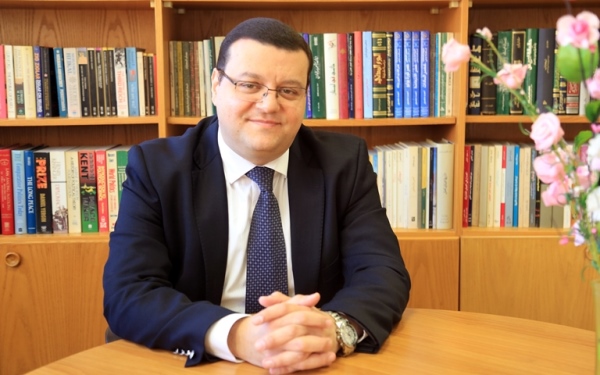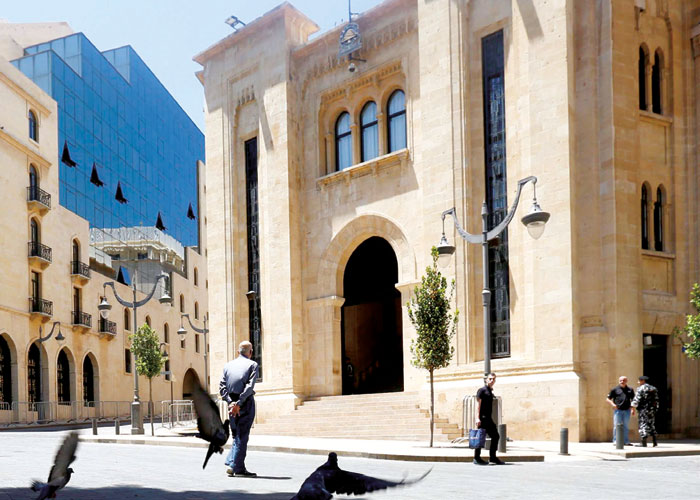Where does Lebanon stand six months after Aoun’s accession?
Rami Rayess / The Arab Weekly
15 مايو 2017

Six months after presidential elections, Lebanon seems to be turning in a vicious circle. The momentum that was on the rise at the onset of the new presidential term has been squandered amid the tensions and divisions regarding the long-awaited electoral law.
The populist slogans that were exploited by the Free Patriotic Movement (FPM) before electing Michel Aoun president on October 31, especially those that dealt with combating corruption, transparency and the rule of law, proved to be mere propaganda for popular consumption.
The speedy approval by the council of ministers of oil and gas tenders worth billions of dollars and the suspicions looming around the electricity plan dramatically increased public fears that there were enormous under-the-table deals done prior to presidential elections without necessarily abiding by laws and regulations.
The dispute over the electoral law continues. Seen by many major players in Lebanon as an extremely important law as it redefines the political lines between the various forces and specifies the weight of each, there is a countdown as to whether the continued endeavours to reach a new law will succeed before the extended term of the parliament ends June 20.
Undoubtedly, the traditional division of power into two competing camps known as March 8 and March 14 eroded prior to presidential elections when contradictory forces met on the nomination of Aoun and elected him as a local and regional compromise

With Lebanese Prime Minister Saad Hariri situating himself closer and closer to Aoun and adopting the electoral suggestions proposed by the FPM, a non-announced rapprochement is taking place between Hezbollah, Lebanese Forces, Parliament Speaker Nabih Berri and Progressive Socialist Party Leader Walid Jumblatt, though that might seem quite illogical and contradictory.
However, regardless of the internal reshuffling of political cards, Aoun seems to be squeezed to find a way to compromise his 11-year alliance with Hezbollah and his official obligations as a president, especially regarding the anticipated alleviation of sanctions against Lebanese individuals and probably institutions from the Trump administration.
This is a repetition of the scenario that had happened when Hezbollah expressed discontent with the Gulf states prior to Aoun’s first formal visit to Saudi Arabia. This recurrent duality of the Lebanon’s official position and that of Hezbollah is not the first of its kind. During Tammam Salam’s interim cabinet, Lebanon was unanimously boycotted by the Gulf states and a travel ban was issued that left negative ramifications on the ailing Lebanese economy.
The president’s ability to balance between American interests and requirements from Lebanon and Hezbollah, which is deeply involved in the Syrian civil war, will be hardly manageable if the United States develops its strategy in the region to become less lenient with Tehran.
To be clearer, if the United States considers that an Israeli strike on Iran’s ally, Hezbollah, in Lebanon would send a firm message of determination against Iranian regional plots, this would transform Lebanon once more into the battlefield of proxy wars, as it was during its long civil strife (1975-90).
Reverting the Western-Iranian nuclear deal is one thing and launching wars against Iran’s regional allies is something else. Lebanon must locate diplomatic methods to transmit to the Trump administration that it cannot — and should not — pay the price again of international and regional differences. This lies way beyond its capacities.
 عن أمل جنبلاط المتجدد: لبنان يستحق النضال
عن أمل جنبلاط المتجدد: لبنان يستحق النضال
 صحافيون أم عرّافون!
صحافيون أم عرّافون!
 ماذا يجري داخل أروقة بيت الكتائب المركزي؟
ماذا يجري داخل أروقة بيت الكتائب المركزي؟


 عن الخرائط التي تُرسم والإتفاقات التي تتساقط!
عن الخرائط التي تُرسم والإتفاقات التي تتساقط!
 “الإنحراف في الحياة”/ بقلم كمال جنبلاط
“الإنحراف في الحياة”/ بقلم كمال جنبلاط
 هاشتاغ #صار_الوقت يحل أولاً في حلقة جنبلاط
هاشتاغ #صار_الوقت يحل أولاً في حلقة جنبلاط
 طاولة نقاش عن أزمة الصحافة في جامعة AUST
طاولة نقاش عن أزمة الصحافة في جامعة AUST
 عبدالله: ليظهر لنا وزير مكافحة الفساد حرصه في صفقات البواخر والفيول
عبدالله: ليظهر لنا وزير مكافحة الفساد حرصه في صفقات البواخر والفيول
 عبدالله: غريب أمر وزارة مكافحة الفساد!
عبدالله: غريب أمر وزارة مكافحة الفساد!

 Comment to Uri Avnery: How Sad What Is Looming Ahead
Comment to Uri Avnery: How Sad What Is Looming Ahead
 “Not Enough!”
“Not Enough!”
 … لمن لم يقرأ يوسف البعيني/ بقلم وسام شيّا
… لمن لم يقرأ يوسف البعيني/ بقلم وسام شيّا
 كمال جنبلاط في مولده الأول بعد المائة: تعاليمه وأفكاره ما زالت الحلّ/بقلم عزيز المتني
كمال جنبلاط في مولده الأول بعد المائة: تعاليمه وأفكاره ما زالت الحلّ/بقلم عزيز المتني
 رئيس حزب/ وليس (… سابقاً)/ بقلم د. خليل احمد خليل
رئيس حزب/ وليس (… سابقاً)/ بقلم د. خليل احمد خليل
 التوازن السياسي في لبنان
التوازن السياسي في لبنان
 لبنان… مشاريع انقلابية مؤجلة
لبنان… مشاريع انقلابية مؤجلة
 جنبلاط وحَمَلة أختام الكاوتشوك
جنبلاط وحَمَلة أختام الكاوتشوك
 Le Liban est un symbole de tolérance
Le Liban est un symbole de tolérance
 Our Automated Future
Our Automated Future
 The True Origins of ISIS
The True Origins of ISIS
 Les Misérables vs. Macron
Les Misérables vs. Macron
 عذراً أيها المعلم/ بقلم مهج شعبان
عذراً أيها المعلم/ بقلم مهج شعبان
 رساله الى المعلم / بقلم ابو عاصم
رساله الى المعلم / بقلم ابو عاصم
 إلى روح القائد والمعلم كمال جنبلاط/ بقلم أنور الدبيسي
إلى روح القائد والمعلم كمال جنبلاط/ بقلم أنور الدبيسي
 أسرار وعناوين الصحف ليوم الجمعة 14 كانون الاول 2018
أسرار وعناوين الصحف ليوم الجمعة 14 كانون الاول 2018














